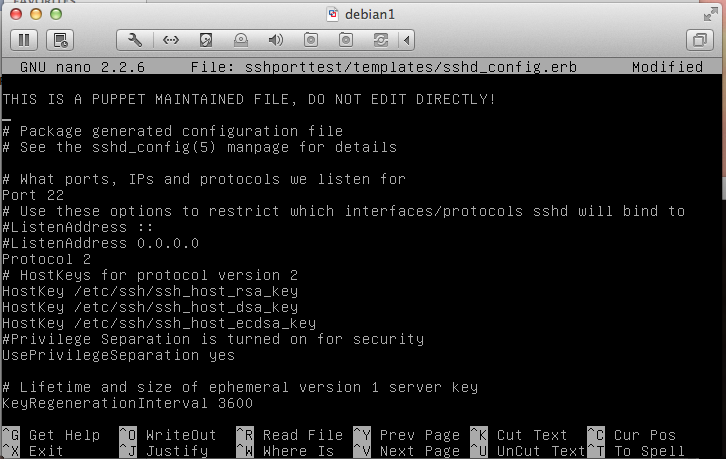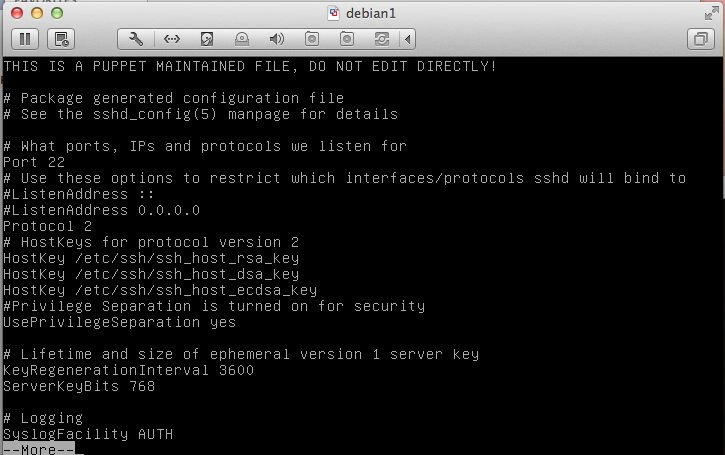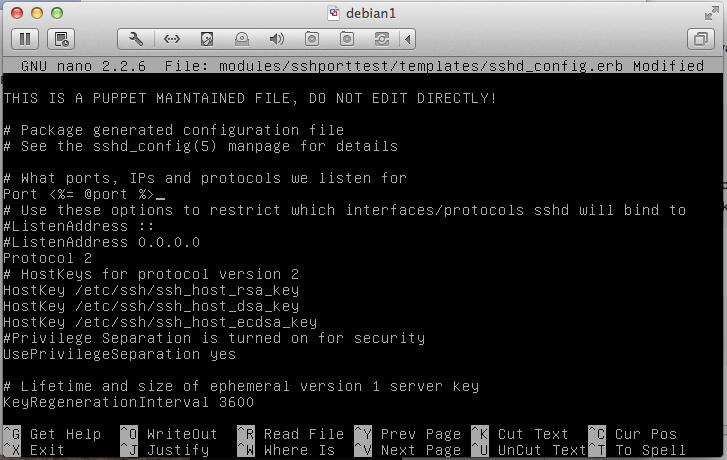Installing SSH with Puppet parameterized classes
Categories:
[school]
Tags:
[linux],
[puppet],
[debian],
[linux-centralized-management-course],
[ssh]
First, I created the default module structure:
mkdir -p /modules/sshporttest/manifests
mkdir -p /modules/sshporttest/templatesThen I created the init.pp file to manifests-directory:
nano /modules/sshporttest/manifests/init.ppAnd wrote the following settings to it:
class sshporttest($port = 22) {
package { 'openssh-server':
ensure => "installed",
}
file { '/etc/ssh/sshd_config':
content => template("sshporttest/sshd_config.erb"),
require => Package["openssh-server"],
notify => Service["ssh"],
}
service { 'ssh':
ensure => 'running',
enable => 'true',
require => Package["openssh-server"],
hasstatus => 'false',
status => "/etc/init.d/ssh status|grep running",
}
}I added a parameter for port on the class line. This can be used on the class apply command, so that we can change the port to install SSH into.
I copied the default SSH config file to the templates directory:
cp /etc/ssh/sshd_config /home/joni/puppet/modules/sshporttest/templates/sshd_config.erbAnd edited the header to test if my module would work:

Finally, tested to run the module:
sudo puppet apply --modulepath modules/ -e 'class {"sshporttest":}'Then I checked that the /etc/ssh/sshd_config file was modified:

I edited the /modules/sshporttest/templates/sshd_config.erb file so it would take the port number from the class parameter:

Then I applied the module again with a parameter port => 2222 to set the SSH port to 2222:
sudo puppet apply --modulepath modules/ -e 'class {"sshporttest": port => 2222}'Finally, I tested that the port has changed:

Sources
- Learning Puppet – Class Parameters (http://docs.puppetlabs.com/learning/modules2.html)
- Tero Karvinen: Linux Centralized Management Lecture 4 (http://terokarvinen.com/2013/aikataulu-%E2%80%93-linuxin-keskitetty-hallinta-%E2%80%93-ict4tn011-4-syksylla-2013)